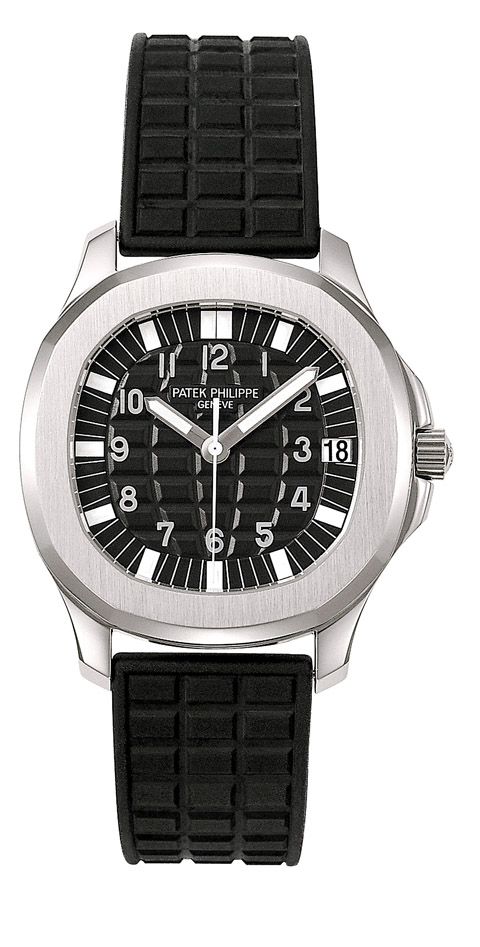Nancy Chemtob, a divorce lawyer in Manhattan, has found that her days have become crammed seeing clients, all worried about how an economic downturn will affect their marriages.
They seem to have nothing to fret about: Their net worths range from US$5 million to US$1 billion. A blip in the markets shouldn’t send their chateau-size Park Avenue co-ops to foreclosure or exile them to Payless Shoes.
But Chemtob’s clients are concerned all the same, she said, because their incomes have shrunk, say, to US$2 million a year from US$8 million, and they know that their bonus checks for this year are likely to be much less impressive.

PHOTO: NY TIMES NEWS SERVICE
One of her clients recently confessed that his net worth had decreased to US$8 million from more than US$20 million, and he thinks that his wife will leave him. He has hidden their fall in fortune by taking on debt to pay for her extravagant clothes and vacations.
“I literally had to sit there and tell him that he had to tell his wife that she had to stop spending,” she said. “He was actually scared she would leave him because their financial situation changed so drastically.”
The wealthy don’t generally speak publicly about their finances, in good times or bad. It’s in poor taste, for one, and their employers could fire them for talking even a little. But people who provide services to the wealthy — lawyers, art advisers, personal trainers and hairstylists — say they are getting an earful about their clients’ financial anxieties.

PHOTO: NY TIMES NEWS SERVICE
Interviews with the people who actually see the bank statements, like divorce lawyers and lenders, say their clients are definitely living on less than they did a year ago, regardless of how expansive the definition of “less” may be. Hairstylists and private jet rental companies say the wealthy are cutting back on luxuries like US$350 highlights and US$10,000-an-hour jet rentals. Even nutritionists and personal trainers notice a problem. The wealthy are eating more and gaining weight because of the stress.
These financial problems — if they can be called that — will hardly elicit tears from the rest of us. But in those gilded living rooms, there is a quiet nervousness about keeping up appearances.
Down, but not out
“Even if they’re not in danger of not paying their mortgage, there’s still a psychological change,” said Chris del Gatto, chief executive of Circa, which has watched its business jump by 50 percent in the last year as wealthy clients sell their spare diamonds and Rolexes. “The economy is an issue even for people who don’t need the money.”
Their spouses could leave them when they discover that their net worth has collapsed to eight figures from nine. Friends and business associates could avoid them as they pass their lunchtime tables at Barney’s or the Four Seasons. And these snubs could trickle down to their children.
“They fear their kids won’t get invited to the right birthday parties,” said Michele Kleier, an Upper East Side-based real estate broker. “If they have to give up things that are invisible, they’re OK as long as they don’t have give up things visible to the outside world.”
So New York’s very wealthy are addressing their distress in discreet and often awkward ways. They try to move their US$165 sessions with personal trainers to a time slot that they know is already taken. They agree to tour multimillion-dollar apartments and then say the spaces don’t match their specifications. They apply for a line of credit before art auctions, supposedly to buy a painting or a sculpture, but use that borrowed money to pay other debts.
“Most people won’t go to their banker and say: ‘You know I’m in desperate trouble. I need funds,’” said Andy Augenblick, president of Emigrant Bank Fine Art Finance, which allows clients to borrow against art collections worth more than US$2 million. Augenblick said that the number of requests for these types of loans is five times higher than a year ago. He said that while these borrowers claim that they don’t need the money, their latest financial statements show that their net worth has withered in the past year.
Other wealthy clients are cutting luxuries that they think their friends and relatives won’t notice, according to Del Gatto of Circa. At Circa’s midtown offices, he said, the seven consultation rooms have been busy with customers selling their precious gems. Some older couples, he said, are selling estate jewelry to help support their children who have lost Wall Street jobs. Bankers are paring down their collections of Patek Philippe watches. Wives from Greenwich and Scarsdale are selling 2-carat to 35-carat single-stone diamond rings. One recent client explained to Del Gatto that she was selling US$2 million in diamonds she rarely wore, because her friends wouldn’t notice that they were gone.
“She said, ‘If I sold my Bentley or my important art, they would notice,’ “ he said. “That we hear, in differing examples, every day.”
Wealthy tighten their belts
Art consultants find that the very wealthy are more receptive to parting with their precious works. Cassie Rosenthal, an owner of the Chelsea gallery Goff & Rosenthal, said that since the subprime crisis hit in the fall, and especially since the New Year, some collectors are willing to sell pieces that were off limits in the past. She said that when the deals close quickly, they’re happy.
“Most people will just sort of say: ‘Will you sell this for me? When you can get me payment?’” Rosenthal said. “It’s more about the urgency of getting paid.”
Justin Sullivan, managing director of Regent Jet, which leases private airplanes, said most clients in real estate and on Wall Street are switching to chartered jets over private jets, and cutting their flight budgets by about 25 percent. One New York real estate developer cut his budget to less than US$250,000 a year from US$1.5 million a year.
“A year ago, he would have only flown Gulfstreams,” Sullivan said. “Now it’s moving to the point where he’s flying Beech jets and Learjets.” Some wealthy New Yorkers are even cutting back on relatively smaller things. At J Sisters, a midtown Manhattan salon where celebrities like Naomi Campbell and Gwyneth Paltrow mingle with Wall Street clients, stylists and colorists say they hear about money worries all day. On a spring afternoon, a half-dozen hairstylists to the very wealthy talked about how customers are stretching their US$350 highlights and US$150 haircuts to every eight weeks instead of six weeks. Some women are cutting out highlights entirely, saying they would “rather be brunettes.”
Jean-Francois Pilon, a stylist at J Sisters, has seen many women come less frequently and tip less generously. During the subprime crisis last summer, and the collapse of Bear Stearns last March, he said, many clients tried to stretch out their visits. He interprets these changes in behavior as signs that they need to watch their spending.
“You pick up on it quickly,” he said. “People don’t beg.”
The cracks appear
The drop in wealth has also exposed other personal problems, like bad marriages. Money — which bought jewelry or extravagant vacations — helped smooth over many of these difficulties, said Kenneth Mueller, a psychotherapist in the East Village who works with many Wall Street bankers and real estate developers. Now, he said, his clients “catastrophize” smaller bonuses or shriveling stock portfolios. “You have to remind them that there’s something that has always been there,” he said. “All the money helped mask the anxiety.”
The wealthy can’t hide anything from their nutritionists and personal trainers, because they see the weight gain. Heather Bauer, a dietitian who works with many Wall Street executives who pay US$600 to US$800 a month for her services, says her clients have been eating and drinking more in the last six months. She sees results of this indulging each time they step on a scale, and in their journals that record what they’ve eaten.
One Wall Street executive, Bauer said, snacks on nuts in her office all day to manage the stress of potentially losing her position, while another confesses to inhaling four bowls of cereal at 10pm. Even their sex lives are suffering, Bauer said, because of the stress or because the weight gain makes them feel unattractive.
Her clients blame the economy for their out-of-control waistlines.
“The number one concern that they have is the state of the financial market,” she said. “There definitely is a correlation between the stock market and weight gain.”
Clay Burwell, a personal trainer to many Wall Street executives, said that his clients were also feeling the toll. A year of eating more, drinking more and working longer hours has started to hurt their health.
“They come into the gym with a dark storm cloud over their head,” he said. “They look like hell.”

Aug. 4 to Aug. 10 When Coca-Cola finally pushed its way into Taiwan’s market in 1968, it allegedly vowed to wipe out its major domestic rival Hey Song within five years. But Hey Song, which began as a manual operation in a family cow shed in 1925, had proven its resilience, surviving numerous setbacks — including the loss of autonomy and nearly all its assets due to the Japanese colonial government’s wartime economic policy. By the 1960s, Hey Song had risen to the top of Taiwan’s beverage industry. This success was driven not only by president Chang Wen-chi’s

Last week, on the heels of the recall election that turned out so badly for Taiwan, came the news that US President Donald Trump had blocked the transit of President William Lai (賴清德) through the US on his way to Latin America. A few days later the international media reported that in June a scheduled visit by Minister of National Defense Wellington Koo (顧立雄) for high level meetings was canceled by the US after China’s President Xi Jinping (習近平) asked Trump to curb US engagement with Taiwan during a June phone call. The cancellation of Lai’s transit was a gaudy

From Godzilla’s fiery atomic breath to post-apocalyptic anime and harrowing depictions of radiation sickness, the influence of the nuclear bombings of Hiroshima and Nagasaki runs deep in Japanese popular culture. In the 80 years since the World War II attacks, stories of destruction and mutation have been fused with fears around natural disasters and, more recently, the Fukushima crisis. Classic manga and anime series Astro Boy is called “Mighty Atom” in Japanese, while city-leveling explosions loom large in other titles such as Akira, Neon Genesis Evangelion and Attack on Titan. “Living through tremendous pain” and overcoming trauma is a recurrent theme in Japan’s

As last month dawned, the Democratic Progressive Party (DPP) was in a good position. The recall campaigns had strong momentum, polling showed many Chinese Nationalist Party (KMT) lawmakers at risk of recall and even the KMT was bracing for losing seats while facing a tsunami of voter fraud investigations. Polling pointed to some of the recalls being a lock for victory. Though in most districts the majority was against recalling their lawmaker, among voters “definitely” planning to vote, there were double-digit margins in favor of recall in at least five districts, with three districts near or above 20 percent in